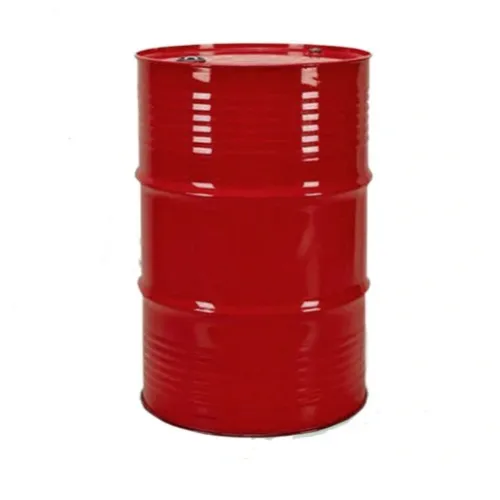Warning: Undefined array key "title" in /home/www/wwwroot/HTML/www.exportstart.com/wp-content/themes/1198/header.php on line 6
Warning: Undefined array key "file" in /home/www/wwwroot/HTML/www.exportstart.com/wp-content/themes/1198/header.php on line 7
Warning: Undefined array key "title" in /home/www/wwwroot/HTML/www.exportstart.com/wp-content/themes/1198/header.php on line 7
Warning: Undefined array key "title" in /home/www/wwwroot/HTML/www.exportstart.com/wp-content/themes/1198/header.php on line 7
- Afrikaans
- Albanian
- Amharic
- Arabic
- Armenian
- Azerbaijani
- Basque
- Belarusian
- Bengali
- Bosnian
- Bulgarian
- Catalan
- Cebuano
- China
- China (Taiwan)
- Corsican
- Croatian
- Czech
- Danish
- Dutch
- English
- Esperanto
- Estonian
- Finnish
- French
- Frisian
- Galician
- Georgian
- German
- Greek
- Gujarati
- Haitian Creole
- hausa
- hawaiian
- Hebrew
- Hindi
- Miao
- Hungarian
- Icelandic
- igbo
- Indonesian
- irish
- Italian
- Japanese
- Javanese
- Kannada
- kazakh
- Khmer
- Rwandese
- Korean
- Kurdish
- Kyrgyz
- Lao
- Latin
- Latvian
- Lithuanian
- Luxembourgish
- Macedonian
- Malgashi
- Malay
- Malayalam
- Maltese
- Maori
- Marathi
- Mongolian
- Myanmar
- Nepali
- Norwegian
- Norwegian
- Occitan
- Pashto
- Persian
- Polish
- Portuguese
- Punjabi
- Romanian
- Russian
- Samoan
- Scottish Gaelic
- Serbian
- Sesotho
- Shona
- Sindhi
- Sinhala
- Slovak
- Slovenian
- Somali
- Spanish
- Sundanese
- Swahili
- Swedish
- Tagalog
- Tajik
- Tamil
- Tatar
- Telugu
- Thai
- Turkish
- Turkmen
- Ukrainian
- Urdu
- Uighur
- Uzbek
- Vietnamese
- Welsh
- Bantu
- Yiddish
- Yoruba
- Zulu
ກ.ກ. . 27, 2024 13:01 Back to list
Exploring the Uses and Benefits of Uninhibited Propylene Glycol in Various Industries and Applications
Understanding Uninhibited Propylene Glycol Uses and Applications
Uninhibited propylene glycol, a colorless, odorless liquid, is a derivative of petroleum that plays a significant role in a variety of industries due to its unique chemical properties. Classified as a glycol, it has gained widespread acceptance owing to its safety, low toxicity, and versatility. Unlike inhibited propylene glycol, which contains additives to prevent chemical reactions, uninhibited propylene glycol is free from such substances, making it suitable for a broader range of applications, especially where food or pharmaceutical purity is paramount.
Chemical Properties
Propylene glycol (PG) has a dual hydroxyl (-OH) functional group, which contributes to its ability to absorb moisture and act as a solvent. This property is fundamental in its role as a humectant, enabling it to retain moisture in products ranging from food to skin care formulations. Additionally, its stability under heat and pressure makes it an ideal candidate for various manufacturing processes.
Industrial Applications
In industrial settings, uninhibited propylene glycol is commonly utilized as an antifreeze and coolant in HVAC systems and automotive applications. Its low freezing point allows it to prevent the formation of ice in mechanical systems, thus ensuring smooth operation in colder climates. Moreover, it is used in the production of de-icing solutions for aircraft, helping to enhance passenger safety during winter operations.
In addition to its use in antifreeze solutions, uninhibited propylene glycol is a key component in manufacturing plastics and resins. Its ability to dissolve a variety of substances makes it an excellent solvent, aiding in the production of fiberglass and other materials. Furthermore, it acts as a carrier substance in numerous pharmaceutical and cosmetic formulations, ensuring active ingredients are delivered effectively to the target area.
Food and Beverage Industry
uninhibited propylene glycol

The food and beverage industry heavily relies on uninhibited propylene glycol due to its Generally Recognized As Safe (GRAS) status from the U.S. Food and Drug Administration (FDA). It is commonly used as a food additive, where it acts as a flavor solvent, emulsifier, and humectant. Its presence in products like baked goods, salad dressings, and ice creams helps maintain moisture and improve texture, ultimately enhancing the consumer experience.
Pharmaceutical Use
In the pharmaceutical sector, uninhibited propylene glycol serves various functions, including solubilization and stabilization of drugs in liquid formulations. Furthermore, it can serve as a laxative when administered in controlled doses. Its low toxicity makes it suitable for use in products intended for vulnerable populations such as infants and individuals with compromised health.
Environmental Considerations
Despite its usefulness, the environmental impact of uninhibited propylene glycol should be considered. While biodegradable, it is essential to manage its disposal properly to prevent potential water contamination. Many manufacturers are increasingly adopting sustainable practices, focusing on responsible sourcing and minimizing waste, which can help mitigate environmental concerns.
Conclusion
Uninhibited propylene glycol is a versatile compound with numerous applications across various industries, from manufacturing and automotive to food and pharmaceuticals. Its unique properties make it a valuable ingredient in many products, allowing for improved performance and consumer satisfaction. However, awareness of its environmental impact is crucial as industries move towards more sustainable practices. As technology and research advance, the applications of uninhibited propylene glycol are likely to expand, reinforcing its importance in modern manufacturing and formulation.
Latest news
-
Certifications for Vegetarian and Xanthan Gum Vegetarian
NewsJun.17,2025
-
Sustainability Trends Reshaping the SLES N70 Market
NewsJun.17,2025
-
Propylene Glycol Use in Vaccines: Balancing Function and Perception
NewsJun.17,2025
-
Petroleum Jelly in Skincare: Balancing Benefits and Backlash
NewsJun.17,2025
-
Energy Price Volatility and Ripple Effect on Caprolactam Markets
NewsJun.17,2025
-
Spectroscopic Techniques for Adipic Acid Molecular Weight
NewsJun.17,2025

